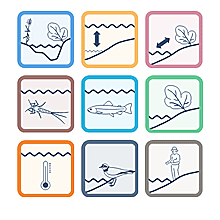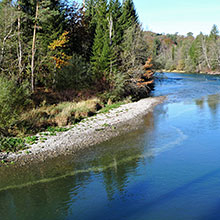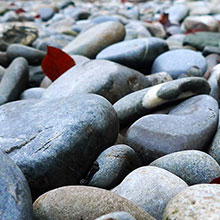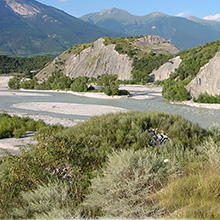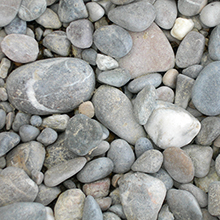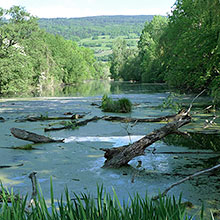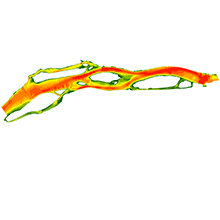Department Surface Waters - Research and Management
River Restoration
Channelization, water pollution, hydropower generation – rivers belong to the most heavily impaired ecosystems worldwide. At the same time rivers are highly dynamic systems of particular biodiversity. Numerous river restoration projects will be implemented in Switzerland over the coming decades. What are the challenges and what degree of improvement is possible?
We tackle open questions from practical river management in the framework of the Swiss Rivers program. In our transdisciplinary research projects we focus on the following objectives:
- Improving the data basis: e.g. by developing concepts for cross-project comparisons of river restoration measures at the national scale
- Investigating and developing restoration measures: e.g. by improving our understanding of the interplay between structure and function of restored river systems
- Supporting a sustainable management of river systems: e.g. by contributing to solutions to reconcile conservation and exploitation of river systems










